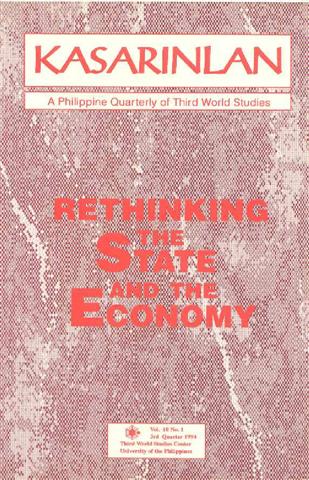Abandoning the Pork-Barrel State, Rethinking Economic Policies
Abstract
Economics is now the dominating force in determining the course of a nation. The agenda of a nation is to rise up to the challenge paved by economic transformation. The aim is to gain a bigger share of the market, promote more investments, and, in turn, create more employment, as well as lower prices to benefit consumers. The hope is to attain a stronger economy that will eradicate poverty and ensure a better life and a brighter future for the people. The Philippines must respond to these changes by veering away from the ‘pork barrel’ mentality of protectionism and patronage that most often lead to corruption and inefficiency which, in turn, result in the government’s failure to uplift the people’s standard of living. The country needs self-reliant and dynamic local chief executives who are able to tap funds for investments and revenue-generating projects. As a whole, the nation has to actively wage war against poverty by investing in its abundant labor force and fully opening the economy to foreign investors. However, environmental concerns, human freedoms and dignity, and social justice cannot be sacrificed in the name of development. These factors need to be taken into consideration in changing the nation’s economic policies in order to survive in a world that calls for greater economic cooperation among nations.
Published
2008-06-06
How to Cite
PAYUMO, Felicito C..
Abandoning the Pork-Barrel State, Rethinking Economic Policies.
Kasarinlan: Philippine Journal of Third World Studies, [S.l.], v. 10, n. 1, june 2008.
ISSN 2012-080X.
Available at: <https://journals.upd.edu.ph/index.php/kasarinlan/article/view/890>. Date accessed: 27 aug. 2025.
Section
Features
By submitting a manuscript, the authors agree that the exclusive rights to reproduce and distribute the article have been given to the Third World Studies Center.



